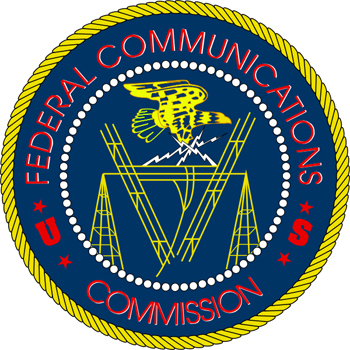FCC to Review National Cap, UHF Discount
The professional video industry's #1 source for news, trends and product and tech information. Sign up below.
You are now subscribed
Your newsletter sign-up was successful
WASHINGTON—A vote has been scheduled for a review of the 39 percent national TV station audience reach cap, aka national cap, per a statement from FCC Chairman Ajit Pai. In the official order circulated to the FCC commissioners, Pai is proposing a review of the national cap and the UHF discount that could lead result in modified, retained or eliminated regulations.

The national cap and UHF discount are broadcast ownership regulations that determine how many TV stations one owner can have. The UHF discount, specifically, enables UHF TV station owners to only have to count half of its stations’ audience toward the 39 percent cap.
This is different from the media ownership rules that were eliminated at the FCC’s November meeting, as those pertained to whether a single group could own a combination of TV stations, radio stations or newspapers.
Last April, Pai and his fellow Republicans voted to reinstate the UHF discount after it had been eliminated by former FCC Chairman Tom Wheeler. Pai has said that the reason for restoring the discount was to be able to evaluate the national cap and UHF discount together, as he has described them as “inextricably linked” and said the decision to eliminate the discount without reviewing the national cap “effectively tightened the cap without determining whether that was in the public interest.”
The official Notice of Proposed Rulemaking for the national cap/UHF discount, according to Pai’s statement, would determine the future of the regulations “the right way.”
“We would seek public input on whether to modify, retain or eliminate the 39 percent national cap as well as the UHF discount,” Pai said in his statement. “With respect to legal authority, in 2016 the Commission ‘conclude[d] that [it] has the authority to modify the national audience reach cap, including the authority to revise or eliminate the UHF discount’; we will take a fresh look at this issue as well.
“A comprehensive review of the rule is warranted in light of considerable marketplace changes, such as technological developments and increased video programming options for consumers, since the cap was last modified in 2004.”
The professional video industry's #1 source for news, trends and product and tech information. Sign up below.
Democratic commissioner Jessica Rosenworcel released her own statement in response to Pai:
“Today's proposal from the FCC leadership asks to either eliminate or modify the existing national media ownership cap. On this subject, Congress has made it clear that the FCC is not permitted to change or evade the cap, which statutorily probhits a single broadcaster from acquiring stations that reach more than 39 percent of the national television audience. In fact, just yesterday, Congressional leaders warned the FCC not to use its regulatory authority to ignore the law. The FCC proposal asks what authority the Commission has to eliminate or modify the ownership cap and the answer is simple: there is none. This proposal is a giveaway to the largest station group at the expense of diversity, localism and competition.”
Those members of Congress referred to by Rosenworcel that reached out to the FCC include House Minority Leader Nancy Pelosi (D-Calif.), Energy and Commerce ranking member Frank Pallone (D-N.J.) and Rep. Mike Doyle (D-Pa.). The letter also addressed the Sinclair-Tribune merger directly, which if passed would have Sinclair reaching 72 percent of U.S. households.
The organization Allied Progress, in a release issued after Pai's statement, brought up that Republican FCC commissioner Michael O'Rielly has said in the past he believes the FCC does not have jursidiction to raise the ownership caps, saying that only Congress was capable of changing the ownership rules.
“The lengths to which Chairman Pai will go in order to help Sinclair monopolize the local television news industry is astonishing,” said Karl Frisch, executive director of Allied Progress. “This move is not only the latest in a series of rule changes tailor-made for Sinclair's benefit, it is an egregious, and likley illegal, example of overreach by the FCC.”
The vote for the review is scheduled to take place in December. The FCC is expected to give commenters 30-60 days to respond, meaning a decision is not likely before the first quarter of 2018.
